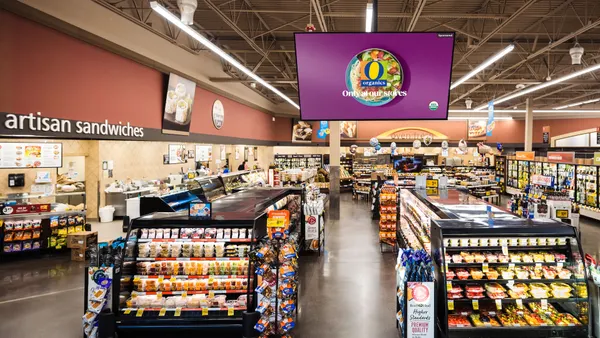Brief:
-
Paragon Automotive, a Honda and Acura dealer in the New York metro area, developed a voice-enabled app for Google Assistant and claims it is the first dealership with such an app. Customers can use voice commands to contact the dealership, book an appointment and schedule service without speaking to a live person, according to a statement.
-
Paragon partnered with Google and two other technology providers to develop its voice-activated app. Team Velocity, which created a proprietary platform called Apollo that analyzes sales and service data to predict car buyer activity, was enlisted to create and deliver hyper-personalized offers to in-market consumers through multiple marketing channels.
-
Red Cap Technologies helps Paragon to monitor and optimize vehicle deliveries and the customer experience to make it easier for customers to work with a dealership. Paragon's Google Assistant integration provides access to ParagonDirect to pick up, service and return vehicles to customers within 24 hours.
Insight:
While automakers have been adding voice-enabled features to vehicles for years, dealerships have mostly depended on their sales and service people to provide customer service. Paragon’s work with Google, Team Velocity and Red Cap may help to transform the way cars are sold and maintained, especially as the millennial generation shows less willingness to learn to drive or to buy cars. At the same time, consumers are starting to embrace voice-based engagements for a variety of activities, including shopping, meaning savvy merchants should be testing how their customers could use digital assistants to engage with them.
The Paragon Honda app points to the importance of partnerships when testing new technologies. The development of a dealership app for Google Assistant didn’t happen overnight. Paragon started working with Google in August to develop the application and hone the responses to possible requests. Paragon revealed the new app at this year's 2018 National Automobile Dealers Association (NADA) Convention.
U.S. vehicle deliveries jumped 6.4% in March, topping expectations as consumers sought out light trucks and dealerships offered higher discounts, per Autoweek. The strong results followed a weak performance in February. Car dealerships are expected to face more difficult sales conditions this year, even as the economy grows and unemployment hovers near 17-year lows. The Federal Reserve has been gradually raising interest rates, making financing for cars more expensive for many consumers. U.S. auto sales last year fell 2% after hitting a record high of 17.55 million units in 2016, per CNBC.









